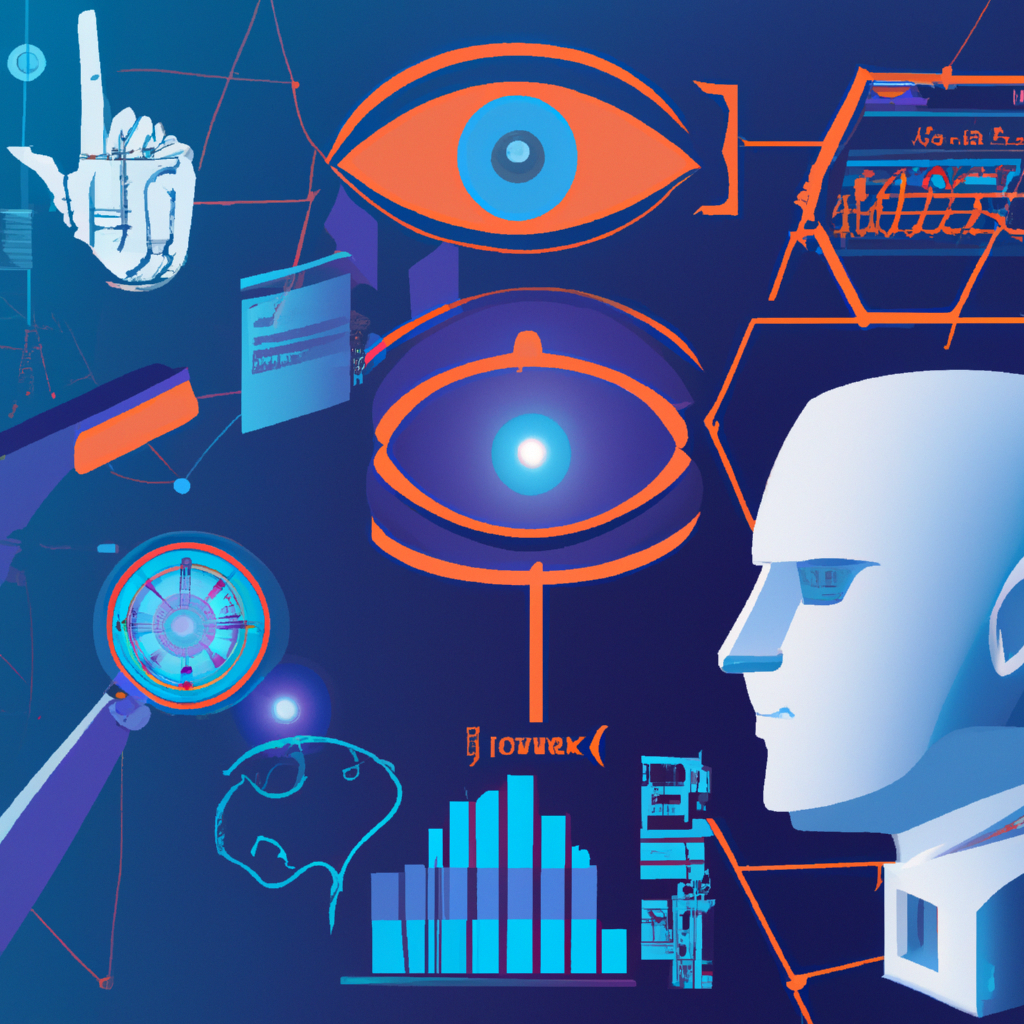-
Table of Contents
- Introduction
- How AI Tools are Changing the Landscape of Cybersecurity
- Exploring the Benefits of AI-Powered Cybersecurity Solutions
- The Impact of AI on Cybersecurity: What to Expect in the Future
- The Role of AI in Automating Cybersecurity Processes
- The Challenges of Implementing AI-Based Cybersecurity Solutions
- Conclusion
“Unlock the Future of Cybersecurity with AI Tools: Safeguarding Your Digital World.”
Introduction
The future of cybersecurity is increasingly reliant on the use of artificial intelligence (AI) tools. AI tools are being used to detect and respond to cyber threats faster and more accurately than ever before. AI-driven cybersecurity solutions are becoming more sophisticated and are being used to detect and respond to threats in real-time. AI tools are also being used to automate the process of identifying and responding to cyber threats, allowing organizations to respond to threats quickly and efficiently. AI tools are also being used to improve the accuracy of threat detection and response, as well as to reduce the cost of cybersecurity operations. As AI tools become more advanced, they will continue to play an increasingly important role in the future of cybersecurity.
How AI Tools are Changing the Landscape of Cybersecurity
The world of cybersecurity is constantly evolving, and artificial intelligence (AI) is playing an increasingly important role in keeping our data and systems safe. AI tools are revolutionizing the way we protect our networks and data from malicious actors.
AI-based tools are able to detect and respond to threats faster than ever before. By leveraging machine learning algorithms, these tools can quickly identify patterns in data and detect anomalies that may indicate a security breach. This allows organizations to respond to threats quickly and effectively, reducing the risk of a successful attack.
AI-based tools are also able to automate many of the tedious tasks associated with cybersecurity. For example, AI-based tools can be used to scan networks for vulnerabilities and automatically patch them. This reduces the amount of time and resources needed to keep systems secure.
AI-based tools are also being used to detect and respond to phishing attacks. By leveraging natural language processing, AI-based tools can detect malicious emails and block them before they reach their intended targets. This helps to reduce the risk of a successful phishing attack.
Finally, AI-based tools are being used to detect and respond to insider threats. By analyzing user behavior, AI-based tools can detect suspicious activity and alert security teams to potential threats. This helps organizations to quickly identify and respond to insider threats before they can cause significant damage.
Overall, AI-based tools are revolutionizing the way we protect our networks and data from malicious actors. By leveraging machine learning algorithms, these tools can quickly detect and respond to threats, automate tedious tasks, and detect insider threats. This is helping to make the world of cybersecurity more secure and efficient than ever before.
Exploring the Benefits of AI-Powered Cybersecurity Solutions
Are you looking for ways to improve your cybersecurity? Artificial intelligence (AI) is quickly becoming one of the most powerful tools in the fight against cybercrime. AI-powered cybersecurity solutions are helping organizations protect their data and networks from malicious attacks.
AI-powered cybersecurity solutions are designed to detect and respond to threats in real-time. By leveraging machine learning algorithms, these solutions can quickly identify and respond to suspicious activity. This helps organizations stay ahead of cybercriminals and protect their data from malicious attacks.
AI-powered cybersecurity solutions can also help organizations reduce the cost of security. By automating many of the manual processes associated with security, organizations can save time and money. AI-powered solutions can also help organizations identify and respond to threats faster, reducing the risk of data loss or damage.
AI-powered cybersecurity solutions can also help organizations improve their compliance with industry regulations. By leveraging AI-powered solutions, organizations can ensure that their security measures are up to date and compliant with industry standards. This helps organizations protect their data and networks from malicious attacks while also meeting their regulatory requirements.
Finally, AI-powered cybersecurity solutions can help organizations improve their overall security posture. By leveraging AI-powered solutions, organizations can quickly identify and respond to threats, reducing the risk of data loss or damage. AI-powered solutions can also help organizations stay ahead of cybercriminals and protect their data from malicious attacks.
As you can see, AI-powered cybersecurity solutions offer a number of benefits for organizations. By leveraging AI-powered solutions, organizations can protect their data and networks from malicious attacks while also reducing the cost of security and improving their compliance with industry regulations. If you’re looking for ways to improve your cybersecurity, AI-powered solutions may be the perfect solution.
The Impact of AI on Cybersecurity: What to Expect in the Future
As technology continues to evolve, so does the need for improved cybersecurity. Artificial intelligence (AI) is becoming increasingly important in the fight against cybercrime, and its impact on cybersecurity is expected to be significant in the future.
AI is already being used to detect and respond to cyber threats in real-time. AI-powered systems can analyze vast amounts of data to identify patterns and anomalies that may indicate a potential attack. This allows organizations to quickly detect and respond to threats before they can cause any damage. AI can also be used to automate many of the tedious and time-consuming tasks associated with cybersecurity, such as patching and updating systems.
AI can also be used to detect and prevent malicious activities. AI-powered systems can detect suspicious behavior and block malicious actors before they can cause any damage. AI can also be used to detect and respond to phishing attacks, which are becoming increasingly common.
AI can also be used to improve user authentication and access control. AI-powered systems can analyze user behavior and detect suspicious activity, allowing organizations to better protect their networks and data. AI can also be used to detect and respond to insider threats, which can be difficult to detect with traditional security measures.
Finally, AI can be used to improve the overall security posture of an organization. AI-powered systems can analyze an organization’s security posture and identify areas of improvement. This can help organizations better protect their networks and data from cyber threats.
The impact of AI on cybersecurity is expected to be significant in the future. AI-powered systems can help organizations detect and respond to cyber threats more quickly and effectively, as well as improve their overall security posture. As AI technology continues to evolve, so will its impact on cybersecurity.
The Role of AI in Automating Cybersecurity Processes
Cybersecurity is an ever-evolving field, and the need for automated processes is becoming increasingly important. Artificial intelligence (AI) is playing an increasingly important role in automating cybersecurity processes. AI can help organizations detect and respond to cyber threats more quickly and accurately than ever before.
AI can be used to detect and respond to cyber threats in a variety of ways. For example, AI can be used to detect malicious activity on a network by analyzing network traffic and identifying patterns that indicate malicious activity. AI can also be used to detect and respond to phishing attacks by analyzing emails for suspicious content and links. AI can also be used to detect and respond to malware by analyzing files for malicious code.
AI can also be used to automate the process of patching and updating software. AI can be used to identify vulnerable software and then automatically apply patches and updates to ensure that the software is up to date and secure. This can help organizations stay ahead of cyber threats and reduce the risk of a successful attack.
AI can also be used to automate the process of responding to cyber threats. AI can be used to analyze data from a variety of sources to identify potential threats and then take appropriate action. This can help organizations respond to threats more quickly and accurately than ever before.
In conclusion, AI is playing an increasingly important role in automating cybersecurity processes. AI can be used to detect and respond to cyber threats more quickly and accurately than ever before. AI can also be used to automate the process of patching and updating software, as well as the process of responding to cyber threats. By leveraging AI, organizations can stay ahead of cyber threats and reduce the risk of a successful attack.
The Challenges of Implementing AI-Based Cybersecurity Solutions
The implementation of AI-based cybersecurity solutions is becoming increasingly important in today’s digital world. As the number of cyber threats continues to grow, organizations must find ways to protect their data and systems from malicious actors. AI-based solutions offer a powerful tool for detecting and responding to cyber threats, but they also come with a unique set of challenges.
One of the biggest challenges of implementing AI-based cybersecurity solutions is the cost. AI-based solutions require significant investments in hardware, software, and personnel. Organizations must also consider the cost of training personnel to use the technology and the cost of ongoing maintenance and support.
Another challenge is the complexity of AI-based solutions. AI-based solutions are often highly complex and require a deep understanding of the technology in order to be used effectively. Organizations must invest in personnel with the necessary skills and knowledge to use the technology.
Finally, AI-based solutions can be difficult to integrate into existing systems. Organizations must ensure that the AI-based solution is compatible with their existing systems and that it can be integrated without disrupting existing operations.
Despite these challenges, AI-based cybersecurity solutions offer a powerful tool for detecting and responding to cyber threats. Organizations must weigh the costs and complexity of implementing AI-based solutions against the potential benefits of improved security. With the right approach, organizations can leverage AI-based solutions to protect their data and systems from malicious actors.
Conclusion
The Role of AI Tools in the Future of Cybersecurity is an important one. AI tools can help to detect and prevent cyber threats, as well as automate many of the tedious tasks associated with cybersecurity. AI tools can also help to identify and respond to threats faster and more accurately than ever before. As the use of AI tools continues to grow, so too will the importance of cybersecurity. AI tools will be essential in helping to protect businesses and individuals from cyber threats in the future.





